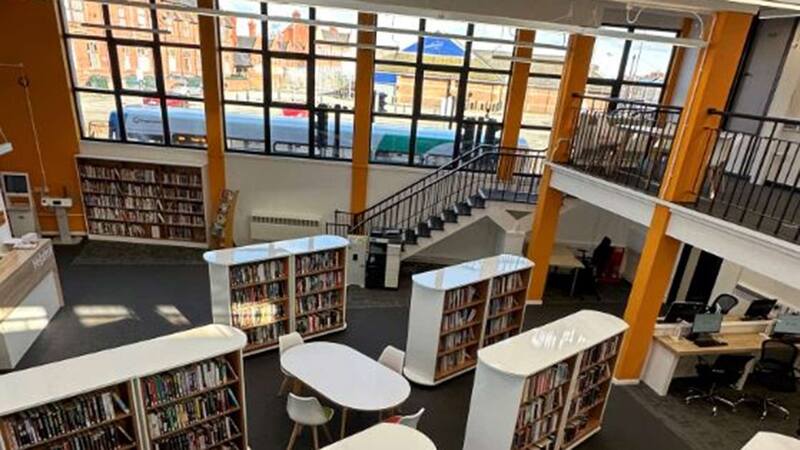You are viewing your 1 free article this month. Login to read more articles.
'Heartbreaking' cuts to Swindon library service finalised
Swindon Council's scrutiny committee has passed plans to close two thirds of the town's libraries by the end of August 2017.
The controversial plans, which have been strongly criticised by headteachers, campaigners and the shadow culture minister Kevin Brennan, were examined by the scrutiny committee and passed on Monday night (12th December).
The move will see a core network of five libraries - Central, North, West, Highworth and Park - operate throughout the town which the council says will meet the needs of 80% of current library visits. Under the new model, staffed hours in Central Library will be 47.5 hours a week, while 15 hours a week of staffed hours would be available at North, West, Highworth and Park libraries. The town's remaining 10 libraries will see opening hours reduced to 15 hours per week from 5th April 2017, with the council anticipating that these libraries will remain funded until 31th August 2017.
A spokesperson for Swindon Council told The Bookseller that discussions with DCMS are "still ongoing" regarding the implentation of a mutual trust model.
Shirley Burnham, library campaigner with Save Swindon's Libraries, described the "annihilation" of its service as "heartbreaking".
"It is important that the borough council acknowledges that to act in haste, without due care, is reckless", she said. "All the ideas that have been touched on to date are untried and untested. If these are not viable for the long term they risk damaging future generations who live here. No doubt the Libraries Taskforce when describing inroads made into the integrity of the professional service as 'innovations', has done little to discourage Swindon and others from believing they have the green light to annihilate their service while getting rid of as many staff as they can get away with. This is heartbreaking for us all. We hope that there will be a complete re-think -- locally and in Westminster."
She said that the council's decision to include a fifth library in its core provision was the direct result of "campaigners' efforts", but the decision to cut staffing to just 15 hours per week for four of the core libraries with "substantially reduced" hours for the central library, "fills users with dismay".
Nick Poole, c.e.o. of the Chartered Institute of Library and Information Professionals, told The Bookseller that the council is "making a mistake" with its plans for cuts.
“Swindon Council is making a mistake, opting for short-term cuts which will create long-term costs for current and future generations of Swindon residents," he said. "It is time for the Minister to use the powers under the 1964 Public Libraries Act to call an inquiry before it is too late. If Swindon Council is simply unable to meet the cost of statutory services then they have to be open about this and appeal to government to resolve the deadlock. Ultimately, library users should not lose out because neither the council nor government are fulfilling their statutory duties.”
Alongside the deep cuts to Swindon's library service, CILIP has also identified proposed cuts to library services in Warrington, Lancashire, Edinburgh and Denbigshire as areas of particular concern and warned that the number of endangered libraries is only set to increase if the government does not challenge local authorities over planned cuts.
“We have already lost 340 libraries over the past eight years and we think that unless immediate action is taken, we stand to use to lose the same number over the next five years", he said.
According to recent figures, a total of 478 libraries have closed across England, Scotland and Wales since 2010 and funding has been slashed by £25m. The figures also revealed that viisits to libraries were down by 5.5% to 250m for the financial year to 2016, a larger decline than a year prior, which saw the number of visits drop 3.9% from 276m to 265m.
Tim Coates, library campaigner and former m.d. of Waterstones, said that the cause in the decline in library visits was not due to funding but because of the way money was spent. According to the Times, the amount councils say goes on library overheads has risen in the past 10 years from £70m to £150m, but the amount spent on books has fallen from £90m to £50m.

















